
Left to right: Dr. Robert Thirsk, Laura Lucier, Natalie Panek
Aug. 20, 2017

Left to right: Dr. Robert Thirsk, Laura Lucier, Natalie Panek
Dr. Thirsk is a member of Canada's first astronaut class, recruited in 1983. He holds a degree in mechanical engineering from the University of Calgary's Schulich School of Engineering, a master's degree in mechanical engineering and an MBA from the Massachusetts Institute of Technology, as well as a Doctorate of Medicine from McGill University. Dr. Thirsk holds the Canadian record for the longest time spent in space, at 204 days, 18 hours. His first trip into space was aboard the Space Shuttle Columbia – a 17-day mission during which he and six crewmates performed 43 experiments related to life and materials sciences. In 2009, he became the first Canadian to undertake a long-duration space mission when he spent 188 days aboard the International Space Station.
Laura Lucier is a flight controller at NASA's Johnson Space Center in Houston, Texas. Her job is to control the International Space Station's Canadarm2 and Dextre robots as they undertake everything from repair and maintenance work, to facilitating astronauts' spacewalks, to conducting experiments, to docking, loading and unloading spacecraft. Laura holds a mechanical engineering degree from UCalgary's Schulich School of Engineering and a master's degree in aerospace engineering from McGill University, and is currently pursuing a PhD in mechanical engineering at the University of Calgary. She is also a licensed commercial pilot and has been twice shortlisted for the Canadian Space Agency's astronaut program.
A self-described rocket scientist, Natalie Panek holds a degree in mechanical engineering from the University of Calgary and master's degree in aerospace engineering from the University of Toronto. Natalie currently works for MDA as part of a Canadian contingent designing and building the chassis and locomotion system for the European Space Agency's ExoMars Rover project. Natalie also works on a project involving satellite servicing, where defunct satellites are repaired or refurbished while in space, making them useful again. Natalie speaks on topics related to space exploration and engineering careers for women, and shares her stories of travel and inspiration in her blog, The Panek Room. In 2017, Natalie was shortlisted for the Canadian Space Agency's astronaut program.
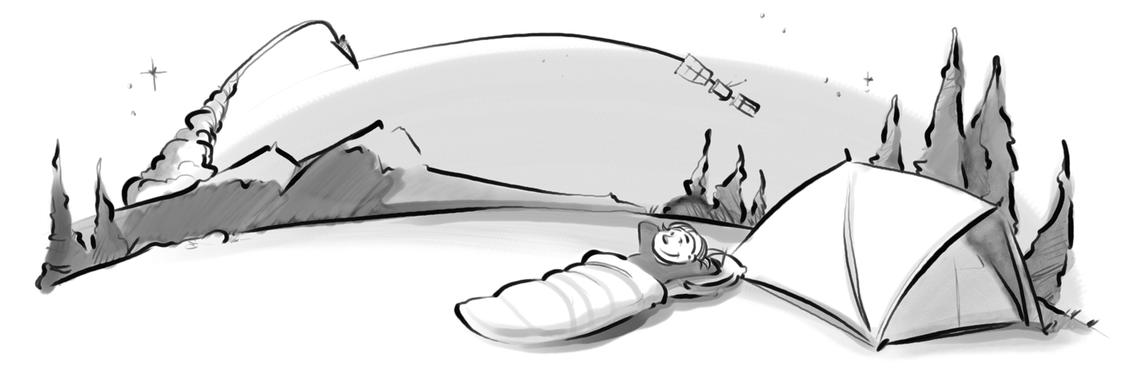
Dreaming of travel to the stars
Robert Thirsk (RT): It started when I was very young. I grew up during the 1960s and 1970s, when there were so many advances that were happening in science and technology and in medicine, and also in space flight. I was in Grade 3 when John Glenn flew in space. My teacher used that moment to introduce the topic of space and what the profession of astronaut was all about. So a seed of an idea was planted in my brain.
Laura Lucier (LL): One of my earliest memories is of going to the Ontario Science Centre as a little girl. It was around the time that the Canadarm was just launching on the Space Shuttle, back in the early 80s. This was new technology that we were very proud of as a nation. There was a test article (a functional prototype used for testing) on display, and they also had space suits and space food and so on. I don't know why that captured my imagination more than the other displays, but it did.
Natalie Panek (NP): Growing up in the Rockies was a huge influence. I spent a lot of time outdoors, camping and hiking, which meant a lot of nights spent stargazing. Out in the Alberta wilderness, there are great dark skies where you can look up at the stars and dream and wonder about what's out there. Also, I watched a lot of science fiction with my mom, shows like Star Trek and Stargate and Star Wars. All of that together led to my passion for space.
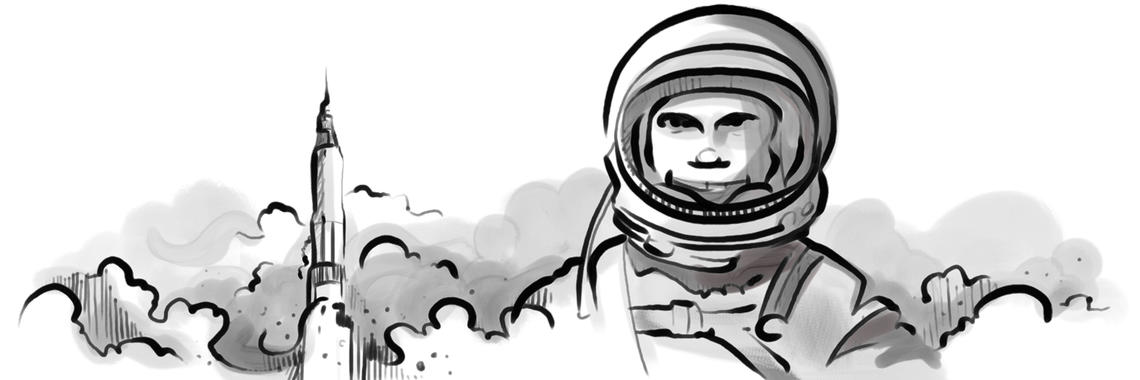
Apollo astronaut John Glenn inspired Dr. Robert Thirsk
RT: When I was a junior high or high school student, I was at the Chinook Centre Mall on Christmas Eve, and I was watching a TV broadcast from Apollo 8. The Apollo 8 astronauts were orbiting the moon, and I remember watching the Earth rising up over the horizon of the moon. That really caught my attention, and I became fascinated with anything related to space flight.
LL: Once I decided that that becoming an astronaut was what I wanted to do, I never changed my mind. I was fortunate in that school came easy for me and I was encouraged by my parents and teachers to follow my dream. I was told there was no reason why I couldn't become an astronaut. "Study your math, study your science, you can do it" was the message I received. And so I stuck with it.
NP: I grew up admiring people like Chris Hadfield and Roberta Bondar. What they were doing seemed so cool and an amazing career goal for a kid like me. That really guided me over the past 20 years. People used to laugh because they'd ask me what I wanted to do and I'd say, "I'm going to be an astronaut," instead of "I want to be . . . " And then as I stuck with it, people would always joke that they know a lot of eight-year-olds who want to be astronauts, but not many people in their 20s and 30s.
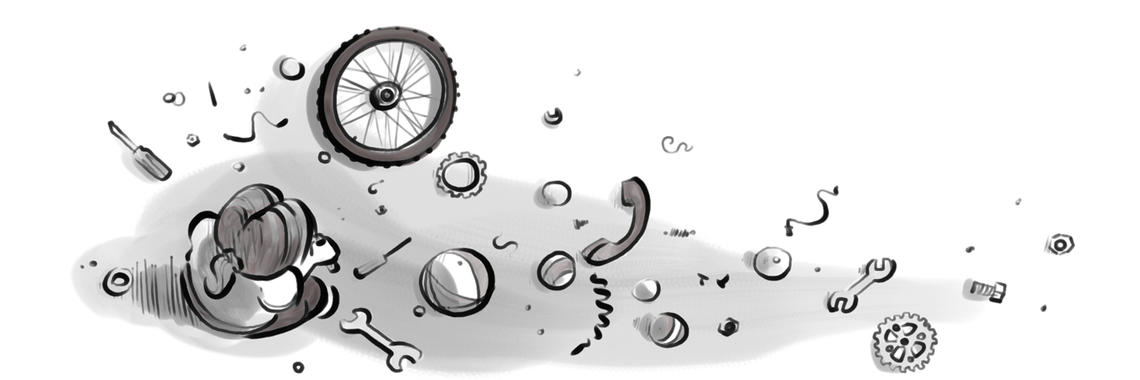
Taking things apart led to a career in engineering
RT: Soon after the John Glenn flight, I realized that it was only Soviets or Americans that were flying in space, that the chance of Canadians flying in space was close to zero. Nevertheless, my early fascination with space flight guided my educational path. I pursued science, I pursued engineering, eventually I pursued medicine as well, so that when Canada was ready to have its own astronaut program, I would already have most of the academic qualifications.
Then one day, while I was working as a doctor in a New Brunswick hospital, I went to the doctors' lounge to relax and opened up the newspaper. On the front page, there was this large ad, saying Canada was looking for its first corps of astronauts. They listed some of the qualifications that they were expecting from applicants and some of the missions that they'd be expected to fly on. That Grade 3 dream that I had many years ago came to the front of my brain, and very quickly I applied for the program. There was a selection process in various stages, and I was fortunate in the end to be among the six people to form the first Canadian astronaut corps.
LL: I did a lot of research. I read the biographies of all the astronauts and figured out what got them there, and concluded that I should consider becoming a scientist, a doctor, a pilot or an engineer. My first choice was military pilot but I was told I'm a little too short, so that option wasn't available to me. Engineering appealed to me because I like figuring out how things work. I like taking things apart and putting them back together again. I'm a very mechanical, hands-on kind of person, so decided to major in mechanical engineering. I spent my summers and every second Christmas in Calgary, and, having read about Robert Thirsk I knew that he went to the University of Calgary, so I opted to pursue my undergraduate engineering degree there.
After finishing my undergraduate degree, I still had the “space bug,” so I obtained my Master's degree in aerospace engineering from McGill University. This allowed me to take classes in aerodynamics, spacecraft dynamics, and aircraft design and control – all things that interested me as a space geek.
NP: Definitely research. I read a lot of profiles of NASA astronauts, trying to figure out what their backgrounds were. A lot of them were engineers, a lot of them were pilots and test pilots. I had a really great physics teacher in high school who taught me the rewards of a career built around science and engineering, and that encouraged me down the engineering path.
I did my mechanical engineering degree at the University of Calgary and then a Master's of applied science in aerospace engineering at the University of Toronto. I always had the end goal of becoming an astronaut and I just did what I had to, to get where I thought I needed to be.

Left to right: Dr. Robert Thirsk, Neil Armstrong, Michael Collins, Buzz Aldrin and Roberta Bondar
RT: The Apollo astronauts, to me, were heroes. They were doing something unbelievable. They were working in this realm that looked foreboding but also very attractive as well.
LL: Certainly Robert Thirsk is someone whose footsteps I try to follow in. I've worked with him on a couple of missions. He was one of my favourite astronauts to work with because he's so grounded and down-to-earth. He's not only incredibly technically capable and able to get the job done, but he's also the kind of guy who would ask how you were doing with sincere interest. He also never let pressure or stress overwrite his sense of wonder and appreciation for the opportunity that he was being given.
There are so many astronauts who have done incredible things. Peggy Whitson is onboard the space station right now, and every day she's setting a new record for time in space as a woman. She also holds records for most space walks by a woman.
I also have a lot of respect for the flight directors. At the end of the day, the astronauts have incredibly difficult jobs. They're the ones away from their families, actually doing these operations and taking the physical risk. But everything they do is orchestrated from the ground and the leader of the ground team is the flight director. They're the ones making sure that what the astronauts are being asked to do is safe and achievable and being prioritized properly. Every day, I'm working with incredible people who are doing incredible things to help make these missions happen.
NP: Roberta Bondar, for sure. Growing up as a young woman, she was a reminder that women can succeed in the sciences. Maryse Carmichael is another personal role model, she's the first female commander of the Canadian Snowbirds. Right now, I'm really inspired by science communicators. People who are out there, on YouTube, on Twitter, on the Internet, talking about space and science and getting people excited about possibilities. The Neil deGrasse Tysons of the world. Physics Girl is another one.
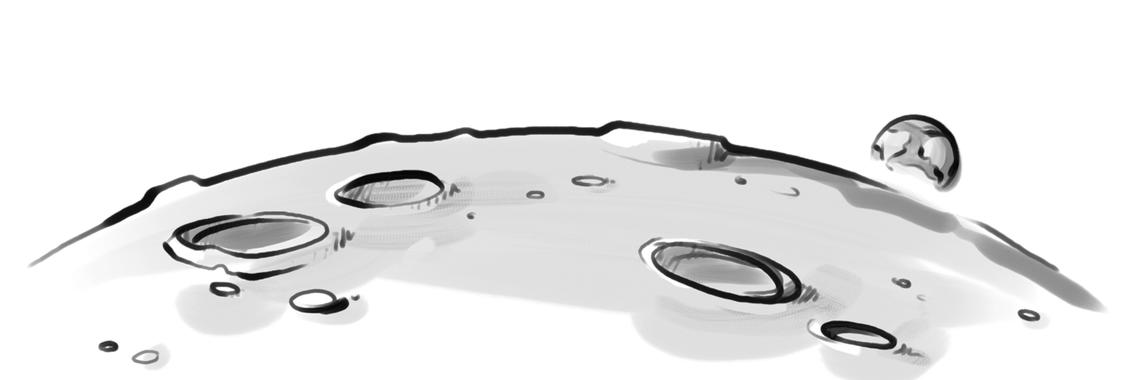
Seeing the Earth from the Moon
RT: It's a natural step in our evolution. Looking down at Earth from the vantage point of space filled me with awe and wonder. Our planet is incredibly beautiful, but we're going to have 10 billion people on this planet by 2050 and I'm not sure that we have the resources on Earth to support 10 billion. Between environmental destruction, between the chance of someone pushing the red button and causing a nuclear holocaust and also the chance of Earth getting hit by large asteroids similar to the one that hit 65 million years ago and wiped out the dinosaurs – those threats are real. I can't say that Earth will no longer be able to support human life in 10 or 100 or 1,000 years from now, but someday a catastrophe will happen and if civilization hasn't seeded Mars or other heavenly bodies, we'll cease to exist.
NP: We talked about my love of the outdoors, and exploring, and when you do a lot of camping you grow up with the principle of leaving no trace. Whatever you take in comes out with you and you leave as little of an impact as you possibly can. While I think it would be amazing to settle another planet, I think there's an interesting aspect in that we do not have a great track record as caretakers of Earth, so what would we do to another planet? As we explore beyond the boundaries of Earth, the technology we create to explore can have powerful spinoffs and help communities here on Earth. I think while we learn about what's out there we also learn about ourselves, and that's pretty powerful.
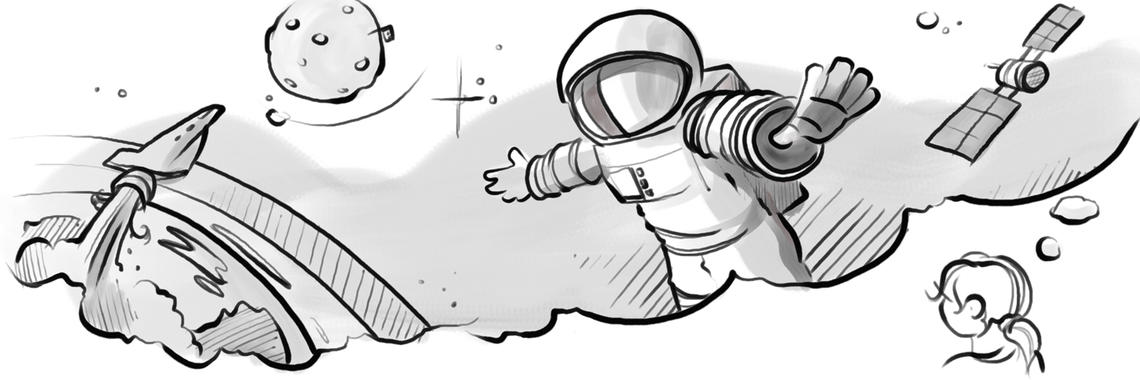
Dreaming of becoming an astronaut
RT: The Mars astronauts are alive today and they're currently in grade school. My life was changed by the exploits of early astronauts and reading about the stories that they had from their space flights. I was inspired to pursue a career in science and in space flight. I think it's my responsibility to encourage the next generation, to fire their imaginations and make sure that they're ready for this daunting mission they'll face in 20 years or so.
My biggest joy is when I'm at an event and some young woman or young man comes up to me and says, "You know, I met you before. You came to my high school 10 years ago. Because of what you said, I decided to stay in school, or I decided to pursue engineering, or pursue medical school and this is where I am right now." Those are the comments that really make me feel like I've done the right thing, that I've pursued the right course in life.
One of the messages that I often give to undergraduates at convocation ceremonies at the University of Calgary is to pursue audacious dreams. When I was young, I had this audacious dream to become an astronaut and at the time, no Canadians were flying in space, but I pursued that dream and one day the dream came true. Not all my dreams came true. I never became an NHL hockey player, for example. But the ones that did come true were very fulfilling and very rewarding, so I encourage all undergrads to think big. Secondly, to stay out of their comfort zone as well. The best learning that I had in my life was when I was uncomfortable – I was learning a foreign language, or I was working long hours, or I was in a wilderness training situation where I didn't have enough food or enough water and I was edgy and miserable. That's when I learned the most.
LL: Simply having a goal, having an ambition that forces you to continuously better yourself will lead you to be successful in life. My goal to become an astronaut has led me to become a commercial pilot and a SCUBA instructor, for example, and to have sought various adventures all around the world. These achievements will always be incredible memories for me, things I can be proud of, things that have formed me as a person. Even if I'm never successful in becoming an astronaut, simply wanting to become one has served me well in life.
Having this goal also kept me out of trouble as a kid. For example, I knew I had to study hard and do well in school because if I didn't study I wasn't going to become an engineer. And if I didn't become an engineer I wasn't going to become an astronaut.
NP: Dream big. If you have opportunities to do hands-on work, to build things and make things and experiment, do it, because while I've learned a lot from my books and coursework and studying, I've learned even more from that hands-on work where you're interacting with a team and brainstorming ideas and actually building stuff.
I would also say that a lot of times kids worry that they're going make a wrong decision, or that they're not going down the right path. But I honestly think there's no wrong path, there's just different paths that will lead you in different directions with different experiences along the way. Each path teaches you more about yourself and what your own passions are. So try not to get hung up on making the wrong decision!